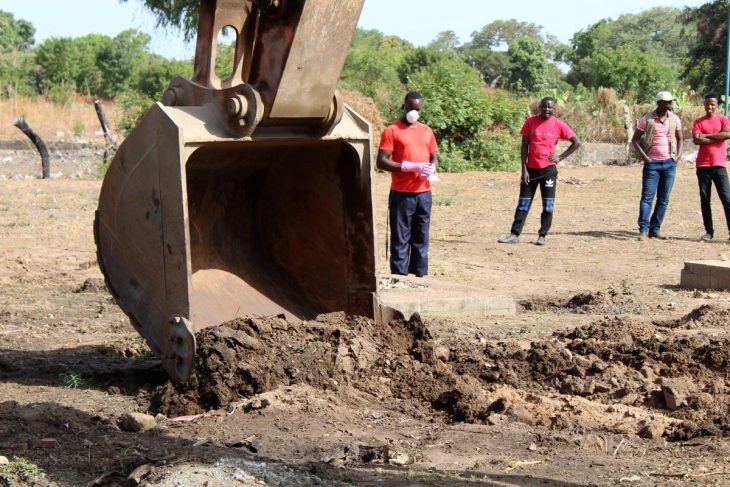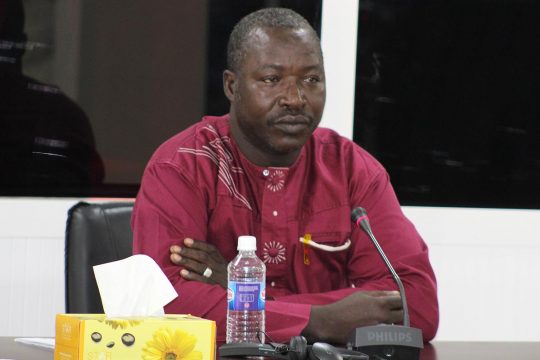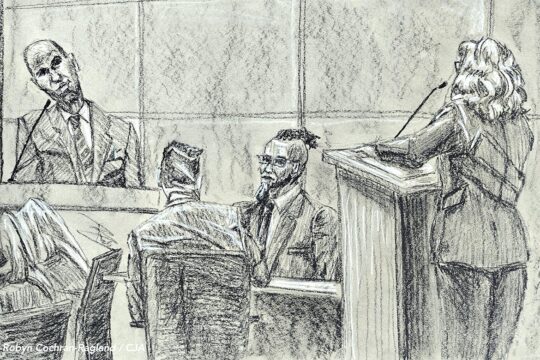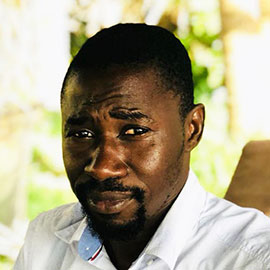John Charles Mendy, a former witness before Gambia’s Truth, Reconciliation and Reparation Commission (TRRC) was arrested last week by the police as he attempted to leave the country through the southern region of Senegal, Casamance. He was apprehended at the Giboro border post and later charged with murder.
His arrest came two weeks after he had testified before the TRRC, which is currently hearing cases relating to the November 11, 1994 execution of close to two dozen soldiers. Soldiers led by Lieutenant Basiru Barrow were killed for organizing a counter coup to return the country to civilian rule, less than four months after a coup, brought Yahya Jammeh to power.
Various witnesses before the Commission confirmed that a counter coup was planned by soldiers before but information about it was leaked to the junta leaders. Jammeh’s men attacked Fajara and Yundum Barracks, capturing and executing the leaders of this counter coup. According to Demba Njie, a former chief-of-staff of Yahya Jammeh (now in exile in Equatorial Guinea), the order for execution came from Jammeh himself. However, the vice-chairman of the military junta in charge of the country at the time, Sanna Sabally, was said to have been the leader of the execution team.
An unconvincing testimony
John Charles Mendy was Sabally’s bodyguard. He admitted to participating in the killing of Lt. Basiru Barrow and Abdoulie Faal who were part of those executed at Fajara Barracks, a military encampment about 20 minute drive from Banjul, the capital city. “They were lined up at the Fajara Barracks and we were lined up in front on them and Sanna (Sabally) ordered us to fire and we shot,” said Mendy during his testimony before the TRRC.
However, Mendy’s appearance before the Commission was tense. He was considered to be largely uncooperative with the TRRC lead counsel Essa Faal. He said he witnessed the three executions of soldiers at various locations but claimed he only participated in one. In his written statement, he had in fact denied any participation in the killings, only to admit it during his public testimony.
Mendy also said he had witnessed nine incidents of torture against Gambian civilians who left the road quickly enough as Sabally’s convoy passed. Yet he claimed participation on only one occasion. It took a long time for the lead counsel to get Mendy to accept that the civilians were tortured. He would prefer expressions like “rough-handled” or “jumped on”.
The Justice Ministry’s strong message
The Gambian police said very little about Mendy’s arrest. But it seems clear that it was in connection to his participation in the November 11 executions and his testimony before the TRRC. With his arrest, Gambia’s Justice ministry sends a signal to alleged perpetrators that they will prosecute anyone who is not seen to be cooperating with the Commission. “Mr Mendy’s ‘outrageous dishonesty’, in the face of overwhelming evidence to the contrary, betrayed a lack of empathy towards the families of the victims and the unwillingness to cooperate and assist in the reconciliation process in the country,” stated the Justice Ministry. The Ministry even recommended the immediate dismissal of Mendy from Gambia International Airlines (GIA) where he now works as a chief security.
“The perpetrators are particularly encouraged to be truthful and to take advantage of the amnesty provisions at the TRRC and give reconciliation a chance,” continued the Justice Ministry. “The Ministry would like to further reassure the general public that the TRRC process is not a witch hunt and that there is no need for anyone to abscond from the country, but that any attempts to deliberately conceal the truth in the face of overwhelming evidence will be regarded as an attempt to undermine the integrity of the process, and an unwillingness to cooperate and assist in the reconciliation process, and will therefore bear serious consequences.”
Mendy was granted bail on April 5. Both the Commission’s lead counsel Essa Faal and executive director Baba Galleh Jallow would not comment on Mendy’s arrest and prosecution.
GOING FORENSIC
Gambia’s Truth Commission has began the search for the remains of soldiers allegedly killed by former military leader Yahya Jammeh and his colleagues on November 11, 1994. The search started on April 5 at the country’s biggest military encampment in Yundum, about 40 minute drive from Banjul.
A determined team of investigators from the TRRC and police dug where they believed the killed soldiers may have been buried but the search did not yield the desired results. In three days investigators dug an area of about 10 by 10 meters but the suspected mass graves turn up empty.
Investigators have been given conflicting accounts as to the exact place of the graves. Two specific spots were identified by eye witnesses, all of them soldiers, about the location of the graves. The suspected area covers a land mass of about 20 by 15 meters. On April 8 the search continued in vain. The team is led by Thomas Gomez, a police forensic expert, and Alagie Barrow, the lead investigator at the TRRC. Gomez is the country’s only forensic expert. He has never exhumed a two-decade old body. He remains optimistic. “Otherwise, we will have to dig the whole area,” he said.








